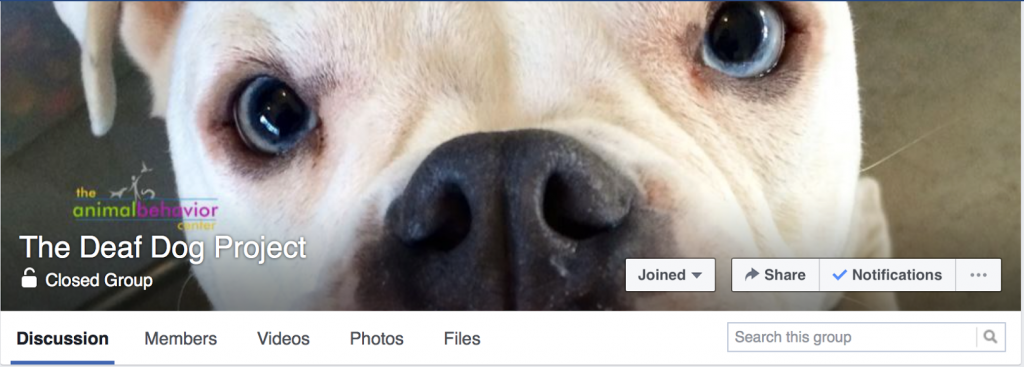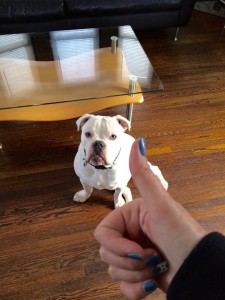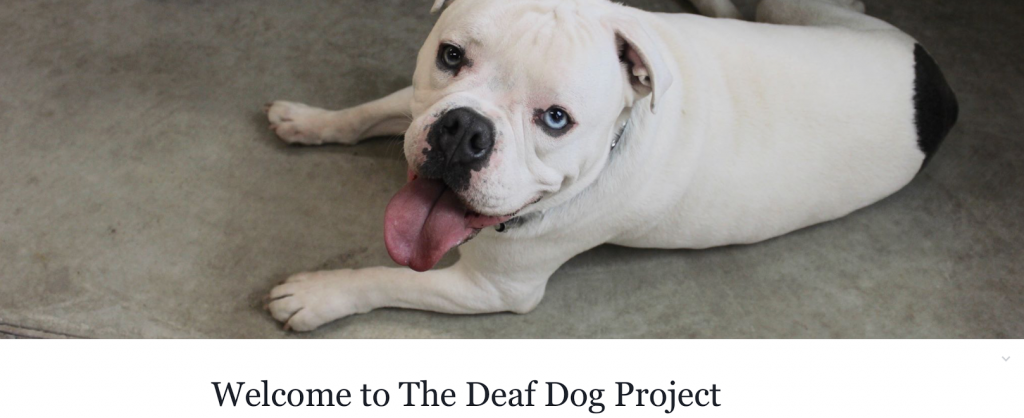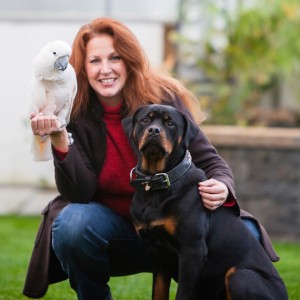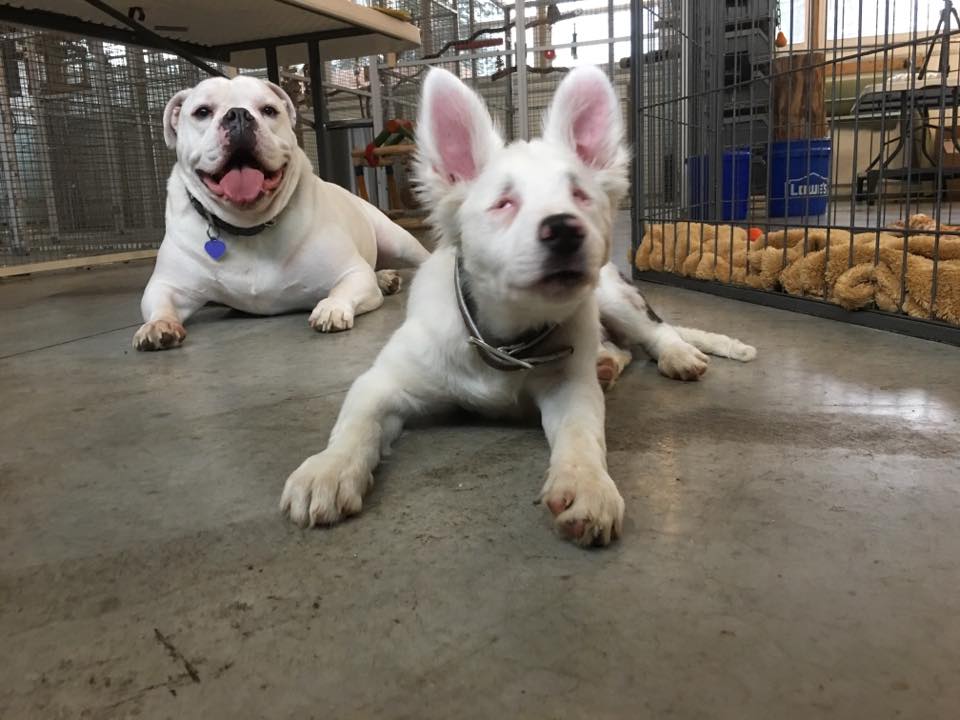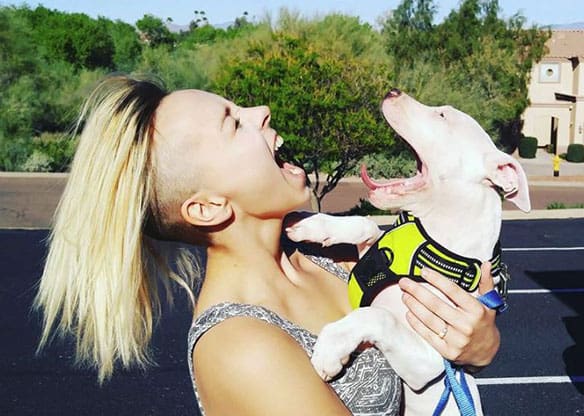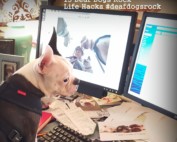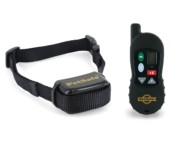Wouldn’t it be great to be able to participate in training sessions and demonstrations to take your deaf dog to the next level from the comfort of your own home? I would like to share some wonderful information about a new on line lecture and live stream training course specifically designed for deaf dogs from renowned trainer Lara Joseph with the Animal Behavior Center.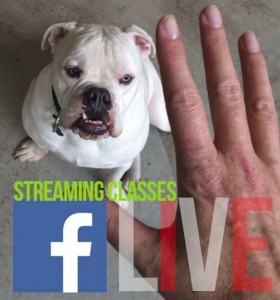
Lara is one of our contributing writers/trainers here at Deaf Dogs Rock and she has put together a very special training series called The Deaf Dog Project. You will be able to join her interactive membership to The Deaf Dog Project and participate in weekly live streams of deaf dog behavior, training and enrichment ideas.
Lara, can you tell us more about your new interactive program The Deaf Dog Project? ~ Christina – Deaf Dogs Rock
I would love to tell you more about The Deaf Dog Project! I have a particularly special interest in training deaf dogs because deafness is not a disability, just a different way of learning about life for both you and your furry friend! I love teaching through training to help give these dogs the confidence they need, and deserve, to succeed. This is why I have designed The Deaf Dog Project, an on-line, interactive, live-stream training forum where I show and resolve behavior concerns and step-by-step training approaches. Read below.
Many times people will tell me they don’t know where to begin interacting with or training a deaf dog and are concerned that it will be too hard for them to apply. This is a totally normal concern, but it’s not a problem! Training a deaf dog is not as hard as you might initially think. It’s different and requires us to think differently as a result. Living and interacting with those that cannot hear, only requires a different way of communicating. Animals are quick to adapt and adjust to a world that doesn’t hear or communicate the way that they do.
In my experience I have found that teaching and training a deaf dog comes easier than training a dog that has fully functional senses. This is due to their ability to read human body language. Dogs are primarily focusing on our body language rather than our speech. Believe it or not, animals often do a better job at knowing what we are asking of them through gesture than humans are capable of non verbally expressing with each other! The only challenge with a deaf dog is that they simply can’t hear what is happening when their eyes aren’t watching. Thanks to adaptation, these dogs have heightened sensory experiences in sight, scent, touch, and taste.
I have worked with a variety of animals from parrots to primates, and one of my areas of specialty is working with deaf dogs. I practice the science of using Applied Behavior Analysis with animals because it takes the use of force, coercion and punishment-based methods out of the equation. Using force can be extremely confusing, frustrating and dangerous!
My approach is the most positive, least intrusive, and I continue to practice it because it works by developing a strong, trusting relationship between me and the animals that I work with. It is the most clear form of interaction that I have used.
While punishment-based methods (do it, or else) may work, they have distinct consequences. The reinforcer, or reason people continue to use these methods, is usually because they can get results immediately.
A few questions to ask yourself if using these methods are:
- Is the undesired behavior decreasing? If not, your method is not working.
- Is the undesired behavior maintaining or increasing? If so, the behavior is being reinforced rather than punishing the undesired behavior.
- Are you seeing other undesired behaviors beginning to happen as a result of using these methods? Other behaviors may include suspicion, barking and running from you, or exhibiting aggression for no apparent reason.
- Do you feel your relationship with your dog could be stronger by using other methods?
- Do you feel your dog understands why these methods are being applied?
Dogs learn quickly and understand very clearly when reinforced for what you want them to do versus telling them what not to do. Telling an animal what not to do can cause frustration, anxiety, and can lead to more undesired behaviors. Showing them a new way of learning and communicating through training makes relationships skyrocket beyond mere coexistence!
I live with two deaf dogs, and one is blind as well. I train them and empower their lives daily. Are you interested in learning how you can incorporate this type of training with your dogs? Let me introduce you to The Deaf Dog Project. I lecture and give training demonstrations to deaf dog lovers and caretakers via weekly live-stream sessions in this paid Facebook group. It includes:
- weekly live-streams of deaf dog behavior, training, and/or enrichment ideas.
- a monthly scheduled Q&A
- a library of deaf dog training videos
- the occasional live-stream of consultations with others
- the occasional review of the training of others in the group
- the review of live-stream replays at your convenience
- an engaging forum for you to interact with other deaf dog lovers
I am a very interactive person and enjoy getting to know my clients through our interactive memberships and The Deaf Dog Project. I prefer to meet people online for training rather than walking into their home. This is simply due to the inclusion of a new person in your home that may have your dog acting completely different than when it is in its normal comfort zone. It is easiest for me to experience what is normal behavior via online interaction. Observation is key!
If you would like to know more about The Deaf Dog Project click on this link www.22s.com/022rto, or if you have questions, I can be reached via email at lara@TheAnimalBehaviorCenter.
More about Lara Joseph
Lara Joseph has had a lifelong interest in communications and the care of animals under human care. These passions lead to her bachelor’s degree in documentary film-making with the intentions of aiding in the production of wildlife documentaries. Her passion has evolved to focusing on the reinforcers of animal behavior in human care. She dedicates her time and studies to behavior and behavior modification techniques using positive reinforcement interaction and her continuing education of master’s classes in applied behavior analysis.
Lara lives in Ohio where she owns and operates The Animal Behavior Center, an animal behavior and training facility based on teaching people how to train, force-free through empowering the animal and creating strong, reliable, trust-building relationships using positive reinforcement and applications in behavior analysis. She travels, lectures, consults, and presents workshops nationally and internationally on behavior, behavior change, positive reinforcement training, and enrichment. She has served on the board at Nature’s Nursery, a wildlife rehabilitation center where she has and currently serves as Director of Training for the animal division. She enjoys working with such organizations as Assistance Dogs for Achieving Independence, animal shelters across the nation, and The Indonesian Parrot Project, where she also sits on the advisory board.
Photo above: Laura lives with many animals but two of her very special friends are her deaf English Bulldog Levi and deaf/blind Aussie puppy Snow.
Lara is a professional member of the Animal Behavior Management Alliance and the International Association of Avian Trainers and Educators. She writes many articles for journals such as The Pet Professional Guild, The American Federation of Aviculture, and is a guest blogger for Deaf Dogs Rock and My Safe Bird Store, and writes for several periodicals on behavior. Lara’s lectures and presentations have taken her many places including The Philadelphia Zoo, The Ohio State University’s Exotic Veterinarians Club, Wheaton College Division of Applied Behavior Analysis, The International Wildlife Rehabilitators Conference, and the Association for Avian Veterinarians.

